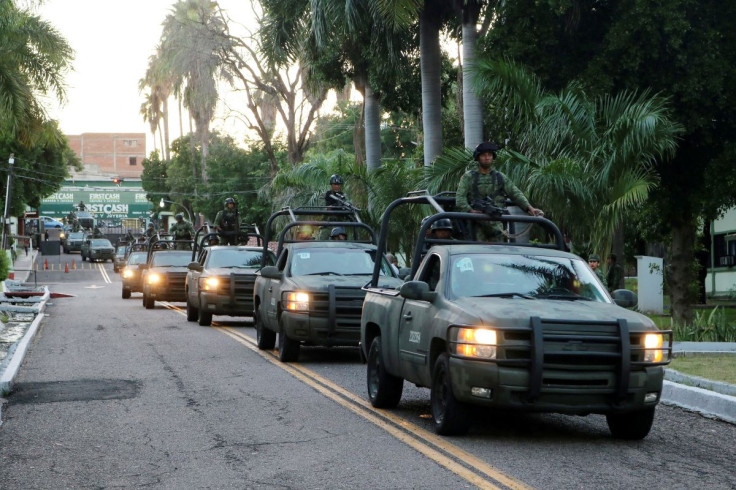
Mexico has sent hundreds of additional troops to Culiacán following the capture of Sinaloa Cartel co-founder Ismael "El Mayo" Zambada and violent episodes that followed.
Concretely, 600 army members were deployed to the state, joining 400 others who were sent to the state less than a month ago. State governor Ruben Rocha Mora said that at least 10 murders committed during the past days are related to the capture of Zambada, which took place on July 25.
Rocha Mora clarified that he doesn't believe the killings are related to a turf war between Sinaloa Cartel factions, but said the army has located "red areas." "Like the president, all I want is peace. We have to ask that to anyone, to those committing violence included," the official added.
Two of those recently murdered were significant drug lords in the state: Martín and Leobardo García Corrales, both linked to "El Mayo" Zambada and allegedly accomplices of Joaquín "El Chapo" Guzmán during his first escape from jail.
The tortured bodies of the García Corrales brothers were discovered on a rural road in the municipality of Elota, near the state Capital of Culiacán, on August 17, alongside a third unidentified body.
U.S. authorities had long sought the García Corrales brothers, offering up to $4 million in rewards for information leading to their capture. They were accused of conspiring to traffic fentanyl into the United States and possessing automatic weapons.
Zambada's arrest has further destabilized an already volatile region. While the Mexican government has delivered stern warnings (and pleas) to organized crime in the region, hoping to prevent a full-out war between warring factions in the Sinaloa Cartel, things are heating up, as many analysts expected.
Despite the military presence, cartel members from both sides have begun mobilizing, with reports of gunmen being recruited and weapons stockpiled. A source close to Zambada's operations indicated that the "Chapitos," as Guzmán López and his brothers are known, have as many as 5,000 gunmen at their disposal, while Zambada's faction relies on alliances forged over decades.
Observers note that the fallout from this power struggle could extend beyond the cartel, involving other organized crime groups across Mexico as they vie for control of the Sinaloa cartel's lucrative fentanyl smuggling routes.
U.S. officials have revealed that Guzmán López had been negotiating his surrender for months, with Zambada's capture seen as an attempt to secure a more favorable deal with American authorities. Zambada, in a statement, claimed he was forcibly taken to the U.S. and called for restraint among his followers, warning against the use of violence.
© 2025 Latin Times. All rights reserved. Do not reproduce without permission.





